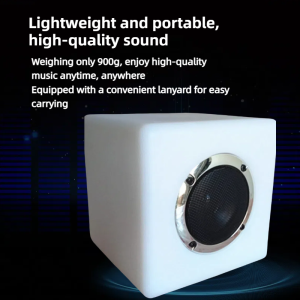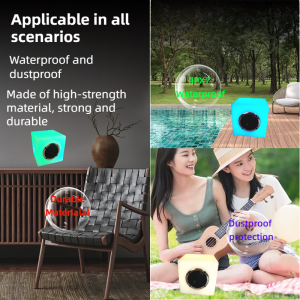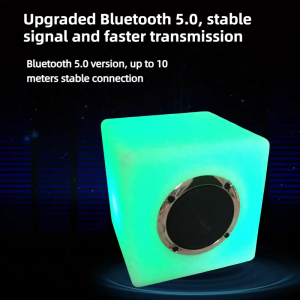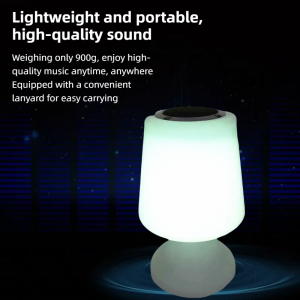Description
mini bluetooth speaker boat
boat bluetooth speaker motherboard
boat mini bluetooth speaker flipkart
Products Description
Mood Light Bluetooth Speakers for Home
The Bluetooth speaker comes with 64 million colors of lights, which will change and flicker with the speed of the music. When the volume of the Bluetooth device is at 80-90% of the total volume, the light will flicker at a high frequency with the speed of the music. When the volume of the Bluetooth device is at 70-80% of the total volume, the light will flicker at a low frequency with the speed of the music. When the volume of the Bluetooth device is below 70% of the total volume, all 64 million colors of lights will be automatically turned off, and the Bluetooth speaker system will automatically enter the hypnosis mode. At this time, the sound it plays is like a lullaby, giving people a comfortable rest environment. In addition, press and hold the power button for 3 seconds, and the Bluetooth speaker will enter the night light mode (i.e. warm white light lighting mode).
| Parameter | |
| Description | Music control lights; Long-life RGB Colorful LED Light;Waterproof and Sunproof;Switch and smart phone control;Rechargeable Lithium Battery |
| Size | 15*15*15,20*20*20,35*35*35cm |
| Material | Import PE |
| Led quantity | 6RGB+6W SMD |
| Channels | mono or stereo |
| Bluetooth work distance | 20M |
| Input voltage | 100-240V 50/60Hz |
| Adapter voltage | 5VDC, make adater plug for fit for different country |
| Power | 5w-100w |
| Charge time | 3 hours |
| Working time | 8 hours |
| Name | bluetooth speaker music control led flashing cube light |
| Use of venues | hotel,party,club,garden,home |
| Work mode | The lights change with the music |
| Colors | 64million colors |
| Net weight and gross weight | 1-2kg/2-3kg |
| Product size | L* w* h: 15*15*15,20*20*20,35*35*35 (cm) |
| Packaging size | L* w* h: 17*17*17,22*22*22,37*37*37 (cm) |
Details Images
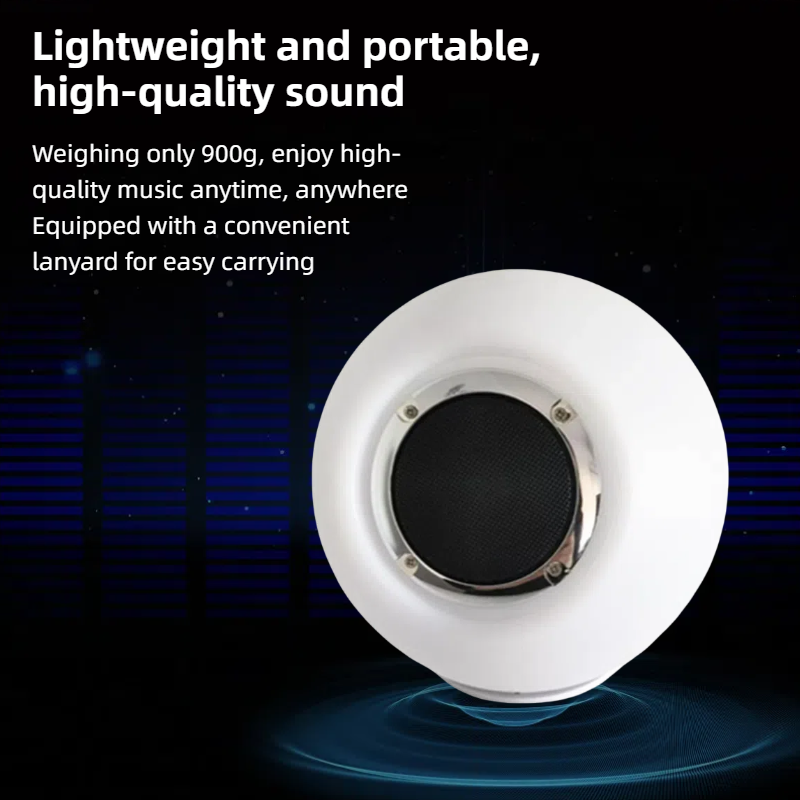
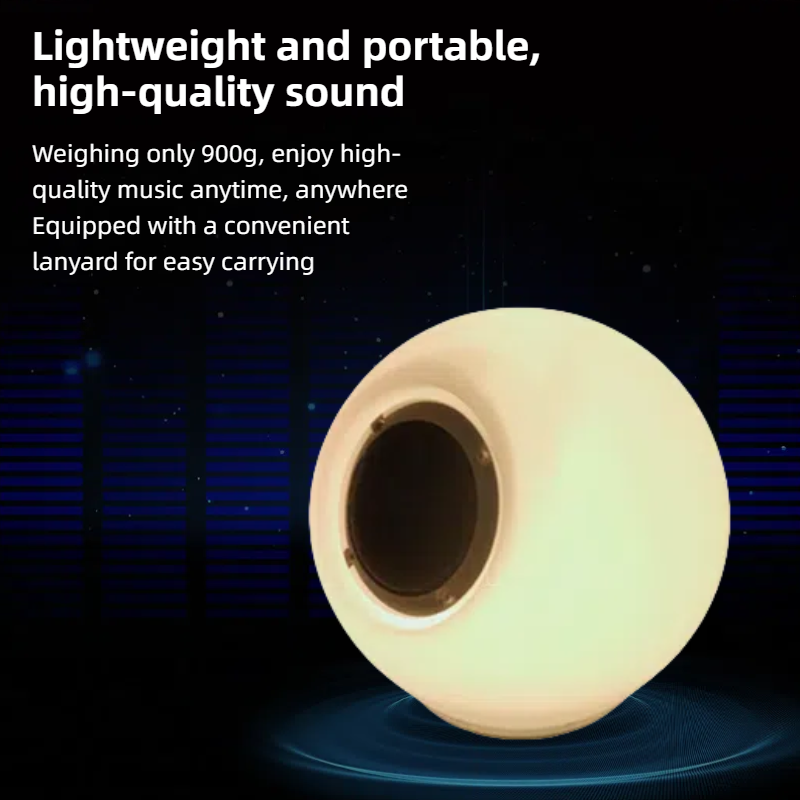



can you make non bluetooth speakers bluetooth
How to turn non-bluetooth speakers into bluetooth speakers: technical analysis and market trends
After discussing the potential and prospects of Sony bluetooth speakers in 2024, we turn to Bose, another world-renowned audio brand. Bose has long been loved by consumers for its excellent sound quality and innovative technology. It is expected that by 2024, Bose will launch a new generation of bluetooth speakers, which will integrate the latest technological development trends to provide users with a richer and more convenient audio experience. This chapter will explore how to turn non-bluetooth speakers into bluetooth speakers and the market impact of this trend.
Technical analysis of turning non-bluetooth speakers into bluetooth speakers
Turning non-bluetooth speakers into bluetooth speakers involves hardware and software upgrades, as well as optimization of user experience. Here are some key technical points:
1. Adding a Bluetooth module: First, a non-bluetooth speaker needs to add a Bluetooth module. This module is responsible for receiving the audio signal sent by the Bluetooth device and converting it into a signal that the speaker can understand for playback.
2. Wireless transmission and reception technology: Bluetooth modules need to integrate wireless transmission and reception technology to ensure stable and efficient wireless connection. This involves compliance with the Bluetooth protocol, as well as the selection and optimization of wireless frequencies.
3. Audio processing technology: To ensure sound quality, speakers need to have high-fidelity audio processing technology. This includes digital signal processing (DSP) technology to optimize audio signals and provide advanced audio processing functions such as equalization and surround sound.
4. Battery life optimization: If the speaker is battery-powered, then battery life optimization is crucial. This involves the application of power management technology and the improvement of energy efficiency.
5. User interface and control: In order to provide a convenient user experience, the speaker needs to have an intuitive user interface and control functions. This may include a touch screen, physical buttons, or remote control through a mobile phone application.
Market trends and impacts
1. Wireless trend: With the popularity of devices such as smartphones and tablets, consumers’ demand for wireless connections is growing. Transforming non-Bluetooth speakers into Bluetooth speakers can meet consumers’ pursuit of wireless audio devices.
2. Smart home integration: The rise of smart homes requires devices to be able to communicate with each other. By upgrading non-Bluetooth speakers to Bluetooth speakers, consumers can more easily connect and control speakers with other smart home devices.
3. Personalized audio experience: With the popularity of high-definition audio formats and personalized recommendation services, consumers want to be able to customize their audio experience according to their preferences. Bluetooth speakers can provide more flexible and personalized audio services through wireless connections.
4. Portability and mobility: The portability and mobility of Bluetooth speakers are one of their major advantages. Transforming non-Bluetooth speakers into Bluetooth speakers makes speakers that were originally fixed in place more flexible and portable.
5. Cost-effectiveness: For some consumers, buying a brand new Bluetooth speaker may not be economical. By upgrading existing non-Bluetooth speakers, consumers can enjoy the convenience and sound quality advantages of Bluetooth speakers at a lower cost.
Conclusion
Transforming non-Bluetooth speakers into Bluetooth speakers is not only a technical challenge, but also a reflection of market trends and consumer needs. By adding Bluetooth modules, optimizing wireless connections, improving audio processing technology, and improving user interfaces and controls, non-Bluetooth speakers can be revitalized to meet consumers’ pursuit of wireless, intelligent, and personalized audio experiences. With the advancement of technology and the development of the market, we have reason to believe that the trend of non-Bluetooth speakers becoming Bluetooth speakers will become more and more obvious, bringing more choices and convenience to consumers.




